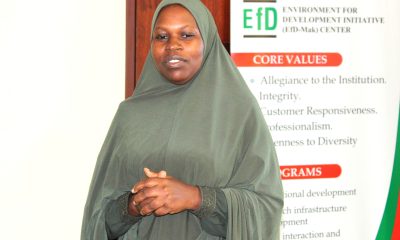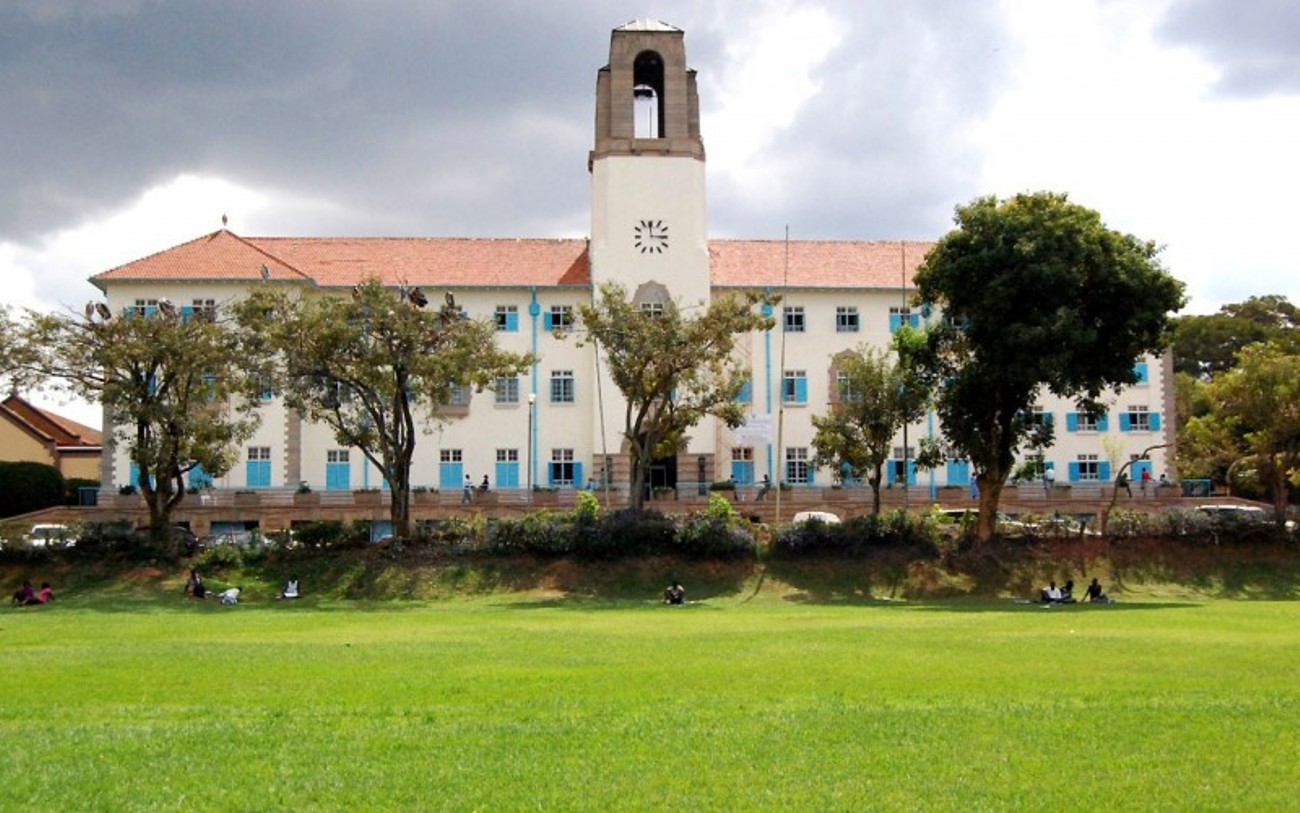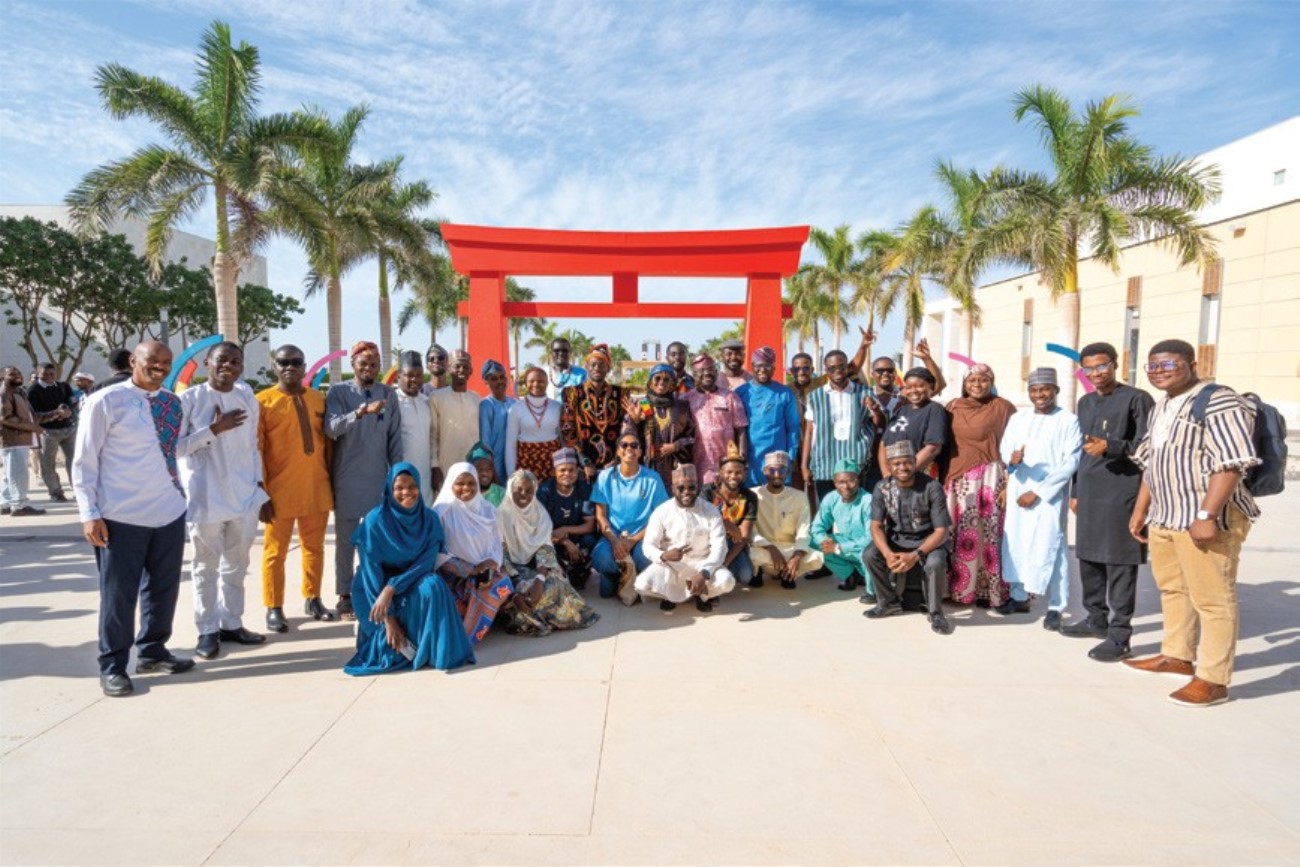The Makerere University Health Services on Thursday 21st November, 2019 launched RxSolution; an integrated pharmaceutical management software, to improve its three pillars of service delivery, training and research. The solution was implemented with support from the USAID Uganda Health Supply Chain (UHSC) Program through the Ministry of Health (MoH).
According to UHSC’s Mr. Michael Kavuma, Mak Health Services is the first public health facility to implement the RxSolution’s dispensing module, which allows users to trace medicine all the way from the stock to the patient, in order to ensure accountability at dispensing level. The dispensing module is linked to the stock module and allows for computerized stock management tasks at patient service points in the outpatient and inpatient departments, Antiretroviral Therapy (ART) clinic, Tuberculosis (TB) clinic, wards, laboratories and other service points.
Mr. Kavuma further shared that RxSolution has been implemented in 276 of Uganda’s 400 higher-level health facilities with Butabika National Referral Mental Hospital, Masaka Regional Referral Hospital and Kayunga General Hospital as pilots. These public facilities can now order for stocks from the National Medical Stores (NMS) using RxSolution software.

As a result of implanting RxSolution, Mak’s Health Services now stand to benefit from; enhanced service delivery through the solution’s ability to incorporate clinical guidelines, multiple reports that can inform decision making, streamlined patient management which empowers administrators to make prioritized deployments of staff as well as support to planning and budgeting for drug stocks.
The Director Mak Health Services Prof. Josaphat Byamugisha thanked USAID and UHSC for their support in deploying RxSolution as well as training staff on use of the software. He added that RxSolution will go a long way in enhancing the research pillar of Mak Health Services. “We currently have three postgraduate students from the Department of Radiology and a number of undergraduates, especially those speciliazing in Health Management Information Systems.”
Prof. Byamugisha lauded the Health Services Interim Board for the role played in setting the agenda for the Hospital, adding that the Board’s vision is to take Mak Health Services to the level of the University’s continental ranking.

“We are committed to looking at Health Services beyond just this hospital. We have clinics at the Makerere University Agricultural Research Institute Kabanyolo (MUARIK) and in Jinja, so as to bring services closer to not only our staff and students but to the surrounding communities as well” he explained.
The Director shared that Mak Health Services are also open to the public, which currently makes up 10% of the total clientele served. He added that the objective was to increase this percentage significantly, so as to generate funds that can be used to further enhance service delivery and boost the facility’s financial sustainability.
The Dean, School of Health Sciences, Dr. Freddy Kitutu could not help but use the occasion to brag about his School’s enviable position of being home to five key disciplines namely; Allied Health Scientists, Dentists, Nurses, Midwives and Pharmacists, despite its relatively small size and young age. He commended the partners for implementing RxSolutions, noting that reports from the system would make it possible for the Pharmacists to carry out detailed reviews on the use of medicines.

Dr. Kitutu reminded the audience that the RxSolution Launch within the World Antibiotic Awareness Week (WAAW) 2019 was timely, as this would help Mak Health Services in curtailing the development of Antimicrobial Resistance (AMR) through improved prescribing and dispensing of antibiotics. He nevertheless noted that prevention is better than cure and called for continued promotion of healthy habits like handwashing.
Speaking on behalf of USAID and UHSC, the Chief of Party, Management Sciences for Health (MSH) Uganda, Mr. Phillip Kamutenga, stated that the support to the Ministry of Health by the partners is meant to ensure that there is uninterrupted supply of medicines in the country. “I am therefore proud that we are going to be witnessing the launch of the dispensing module of RxSolution at the Makerere University Hospital today.”
Mr. Kamutenga emphasised that the traceability of medicines across the supply chain from the stores to the dispensing point is very important and Makerere University is going to be a reference point for all Public Health Units in as far as implementing the dispensing module is concerned. “USAID through the Uganda Health Supply Chain Program has donated the RxSolution, provided 20 computers, set up a Local Area Network and trained clinicians on the system to support this.”

He added that there are never enough resources to finance public health the world over and as such, Public Health Facilities can save a lot by reducing on expiries, stock outs and procuring only what is required by their clients.
The day’s lineup of speakers would have been incomplete without a voice from the student body, the biggest beneficiaries of the Mak Health Services. The President, College of Health Sciences (CHS) and Fifth Year Medicine and Surgery student, Mr. Sserunjogi Emmanuel could not hide his joy at being associated with what he described as “a game changing event.”
He therefore commended his Principal for working with the Mak Health Services to deliver quality diagnosis, treatment and follow-up to the Makerere Community and members of the public through the introduction of RxSolution. “The Makerere University Hospital has today become the epitome of digitizing health services in Uganda.”

The Principal CHS, Prof. Charles Ibingira could not help but laud his colleagues for taking on the challenge of managing the Mak Health Services. He thanked the University Council and Management for assigning his college this responsibility, noting that health services ought to be prioritized for the good of all in the community.
“This hospital has the greatest potential in the country and region; we have the biggest number of specialists at the College, we admit over 400 doctors and health service officers per year and with our vision to create a health management organization present in all Ugandan cities, we could easily become a leading medical tourism destination for the region” remarked Prof. Ibingira.
He therefore thanked USAID, UHSC and the Ministry of Health for working with Makerere University to augment service delivery, training and research efforts within its health services through the implementation of RxSolution. The Principal nevertheless urged the Director Mak Health Services to develop educational programs for staff and students aimed at promoting healthy lifestyles in the face a growing Non-Communicable Diseases (NCD)s burden.

Representing the Ministry of Health (MoH), the Commissioner Pharmaceutical & Natural Medicines, Ms. Neville Okuna Oteba shared that her Ministry is currently pursuing all efforts to ensure Universal Health Coverage (UHC) for Uganda and the successful implementation of integrated pharmaceutical management solutions such as RxSolution lies at the centre of these efforts.
The Commissioner shared MoH’s expectations of Mak Health Services following the successful implementation of RxSolution, with the need to become a Centre of Excellence topping the list. In this regard, she expressed joy that Hospital Staff had already stood out for the exceptional enthusiasm in embracing the rollout of RxSolution. “The College should now ensure that all students visit the Hospital and learn how to use the system before they graduate.”
Ms. Okuna Oteba also stated that MoH expects RxSolution to promote the use investigative health care practices at the Hospital. “Antimicrobial Resistance is a time bomb waiting to happen and all of us are potential victims. We therefore need to talk more about the seriousness posed by poor prescription and dispensing of medicines.”
She concluded by emphasizing that investment in systems should benefit the people, especially as health facilities progress towards paperless patient care management. The Commissioner also asked the Hospital Administration to ensure that all research findings that can inform policy are shared with the Ministry of Health.

Delivering the concluding remarks prior to launching the system, the Vice Chancellor, Prof. Barnabas Nawangwe congratulated CHS as well as the Mak Health Services Management and Staff upon transforming the face of the Hospital within a short period of time. He particularly expressed happiness at the reducing number of students seeking treatment outside the hospital, a reaffirmation of the improved services.
The Vice Chancellor commended Staff especially in the clinical sciences for their dedication to ensuring that students are well trained, noting that they are our future leaders. In the same breath, he thanked the Ministry of Health for regularly providing Mak staff with various opportunities especially in the form of consultancies.
He equally thanked USAID and UHSC for support rendered to Mak Health Services through the various collaborations, noting that this would translate into increased reports from satisfied clients. Prof. Nawangwe then went ahead to launch the RxSolution as well as tour the state-of-the-art laboratory and modern 3D/4D ultrasound unit. He also toured the specialized clinics in Otorhinolaryngology (ENT), Antiretroviral Therapy (ART), Optometry, Dental, Psychiatry as well as Obstetrics/Gynaecology.
Article by Public Relations Office

 General2 days ago
General2 days ago
 Research2 weeks ago
Research2 weeks ago
 Health2 weeks ago
Health2 weeks ago
 Health1 week ago
Health1 week ago
 Business & Management2 weeks ago
Business & Management2 weeks ago


